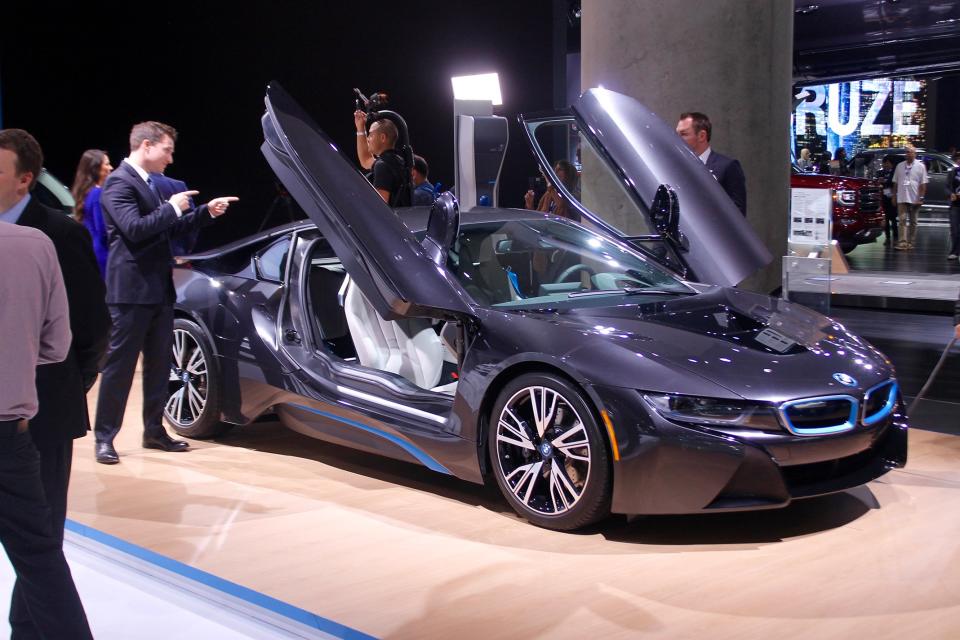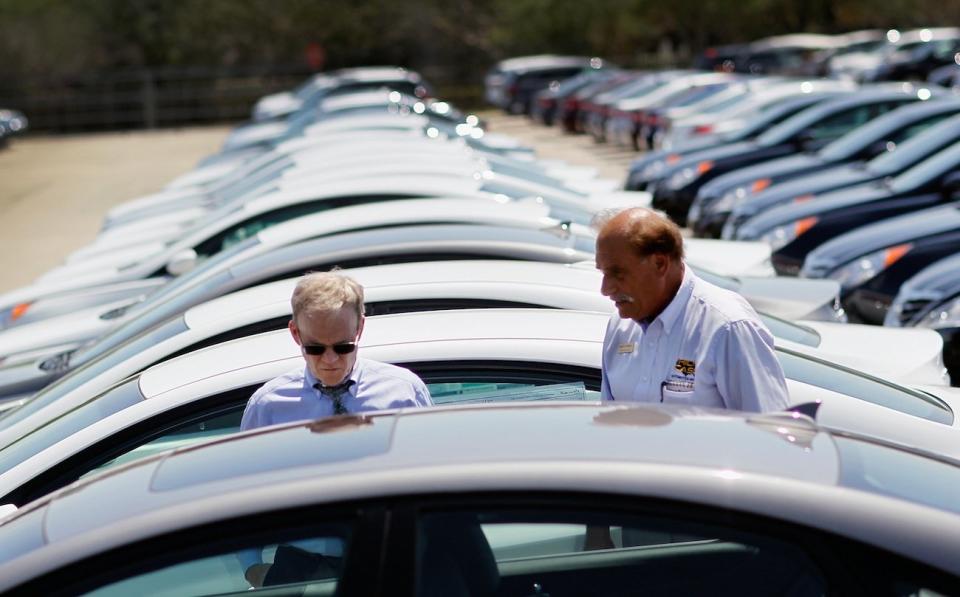The entire US auto industry is on cruise control (gm, f, fcau)

Bryan Logan/Business Insider
The Los Angeles Auto Show kicked off last week, so I headed to the City of Angels to take the temperature of the car industry.
The LA show is a logical place to do this. It starts the nearly six-month marathon that is the global car-show extravaganza, though you could argue that Frankfurt and Toyota got the ball rolling this year.
Next up is Detroit, then Geneva, then Chicago, and finally New York.
In recent years, the auto industry has come to recognize the importance of the tech-car overlap, so the Consumer Electronics Show in Vegas in January has become a sort of extra auto show.
After the 2009 downturn and the bailouts and bankruptcies of Chrysler and General Motors, the car-show mood was grim. Before the downturn, it had been fraught with fear.
LA was frantically trying to recraft itself as being all about green mobility and the car of the future, while New York always felt like an afterthought, the finish line of a desperate journey packed with too many parties and too many positive talking points in an industry that wasn't thriving. The European car business was weak, so the shows there lacked élan.
Comeback story
But the recovery of the past five years has changed the mood. This burst vividly into view last year, when Detroit and Geneva served up double shot of wow! Geneva was a supercarpalooza, while Detroit's fireworks started with the unveiling of the new Ford GT supercar and the looming announcement of a historic return to racing at the 24 Hours of Le Mans, 50 years after an epic Ford win.
The 2014-15 show run was going to be tough to top. Even the New York show, the media equivalent of nursing a hangover, was a blast. So to its credit, the auto industry swaggered into LA not with something dramatic up its sleeve but rather with a sense of restored self-confidence. In 2009-10, the Detroit Big Three — GM, Ford, Chrysler (now Fiat Chrysler Automobiles) were on their backs. In 2015, heading into 2016, they're standing proud.
A booming US auto market is making that possible. There's a real chance that the annual sales pace here for 2015 will mean 18 million cars and trucks will roll off dealers' lots, making this the best year ever for the US market. Given that LA takes place so close to the end of the year, there's only a month to go before the numbers are added up. And when the math wraps, even if the total isn't 18 million, it should be close.

Bryan Logan/Business Insider
Better, the Big Three are moving an epic number of pickups and SUVs, which means that they're raking in profits. Cheap gas, flowing credit, and an economy on the brink of full employment are driving this happy state of affairs.
Confidence restored
Last year, the LA show didn't fully prepare us for the excitement that we experienced when Detroit rolled around. But I think that was because the very good year that the industry enjoyed in 2014 — 16.5 million in total new car sales — came amid massive recalls (as The New York Times pointed out earlier this year) and didn't really seem, well, real until 2015 got underway. The "replacement rate" on car sales in the US is about 15 million, but after the financial crisis it fell to 10 million. That the industry had crawled back to a million and a half above the replacement rate might have been sort of shocking in LA last year.
In LA this year, the confident streak that commenced in early 2015 was cemented. And the market dynamics are currently hard to question. Gas is likely to stay cheap through the first half of 2016. The Federal Reserve might raise interest rates, but that won't necessarily tamp down new-car-buying enthusiasm in a US market where the average vehicle's age is a historically high 11 years. And while a recession isn't out of the question, it would take a severe one to send millions to the unemployment line.
As a result, the LA show had a fairly strong sales flavor. The automakers put a lot of cars and trucks on the floor, because in LA consumers come to show to see cars that might want to buy. This reminded me of what how the LA show was organized in 2011, when the market was recovering but far from booming. Then, the car makers wanted consumers to see plenty of cars, and they brought them.
That same vibe was present last week — just vastly intensified.
That said, literally everyone in the auto industry has the word "cyclical business" burned into their consciousness. That's what the car game is — cyclical. A top means a decline. And if we hit 18 million this year, there will be a strong case made that we've peaked. Then the down cycle will commence.
No collapse coming
Several executives I spoke with in LA offered different views on the market's future. All acknowledged that things can't remain this good forever, although none predicted an imminent collapse.

 Yahoo Autos
Yahoo Autos 
